Breakfast seems to be the meal that always makes people a little… stressed out. And confused. A lot of people have no difficulty making healthy meals for lunch or dinner, but when it comes to breakfast, they panic.
There are a few reasons why breakfast tends to be the meal that’s challenging for people. First of all, most people have preconceived notions about what “breakfast foods” are, which means they think that only certain foods “make sense” to eat at breakfast time. Also, people are usually looking for something they can pull together quickly in the morning, or already have prepped, since many of us have busy mornings (or just don’t want to think too much when we first get up!).
Unfortunately, this narrow mindset of what breakfast “should” look like often leaves people grabbing something less than optimal for breakfast, like a high-sugar, low-protein meal replacement bar or shake, or a sugar-y convenience food… OR they skip breakfast all together.
I don’t know if I’m ready to say that breakfast is hands-down the most important meal of the day for everyone, but I do think it’s very important. It tends to be the meal I need to focus on most with clients in order to help them reach their health goals. While there are certain people who might benefit from intermittent fasting (there are a lot of qualifications to that, in my opinion), many would do best starting their day off with a substantial breakfast that will set them on the right track for the rest of the day. (My thoughts on intermittent fasting, specifically, are best saved for their own post.) This is especially key for women, whose bodies are more sensitive to stressors. Any woman looking to balance her hormones should make sure she eats a nutrient-dense meal in the morning to let her body know that she is “safe” and fed. It lets her body know that a “famine” isn’t on the horizon, so all bodily functions can run as expected.
When it comes to breakfast, the key is to make sure you get plenty of protein and healthy fats in your meal. This will help balance your blood sugar, give you stable energy throughout the day, and prevent you from overeating later on in the day. That’s why this first meal is important – it’s setting the tone for the rest of the day. If your breakfast doesn’t have the right macronutrient balance for your body, this can lead to a blood sugar rollercoaster all day long and impact your mood, energy, and hunger later on.
Many people make the mistake of trying to eat a small breakfast and “save” their calories for later on in the day, but this approach typically backfires whether or not the person realizes it. I’ve seen many clients who can’t figure out why they always get “snack-y” in the afternoon or late at night, and it’s usually because they didn’t eat enough breakfast. When people eat little to not breakfast, they usually go into lunch and/or dinner feeling much hungrier than they would have otherwise, and then they tend to overeat at one or both of these meals. This defeats the “purpose” of having skipped breakfast or eaten a light breakfast to begin with.
People struggling with hormonal imbalances in general, cortisol dysregulation, blood sugar issues, weight management, mood problems, or improper hunger signaling feel tend to feel best when they focus on getting enough protein at breakfast. If someone is already in a state of stress, mental or physical, I don’t recommend adding another stressor like intermittent fasting on top of that. The body wants to feel safe and fed in order to regulate its cortisol rhythms. If someone is struggling to lose weight, I always recommend they get at least 30 grams of protein in at breakfast. This approach also helps people who struggle with sugar cravings in general.
Sometimes people have an aversion to breakfasts that focus on protein content, and there are a few common reasons why. First, they say they’re uncomfortable eating a bigger breakfast simply because they don’t want to “eat too much.” I think we all know what I have to say about this. If you eat a large breakfast and realize later on that you ate too much, then you can always adjust your lunch and/or dinner to be smaller. You also might find you don’t need to snack anymore, and avoiding snacks is optimal for digestion. This is why I’m a fan of front-loading food – your body has the rest of the day to tell you how hungry it really is, and you can adjust your food intake accordingly. On the flip side, if you eat a small breakfast and then accidentally eat a huge dinner because you were extra hungry going into the meal, you can’t really make adjustments to the rest of your meals because the day is already over!
The other reason people shy away from having a bigger breakfast centered around protein is that people tell me they don’t feel hungry, or they don’t “have the stomach” for protein first thing. This is usually just because their bodies are used to eating certain foods at certain times of day. Our bodies get used to what and when we eat, and they adjust hunger signals accordingly. If you eat lunch every day at noon, then you’ll find that you get hungry every day around noon. Anyways, it’s similar to when vegans or vegetarians claim they can’t digest protein. Well, of course you can’t! If your body hasn’t had to digest it for a long time, it will have downregulated the production of the proper enzymes to do so! You have to retrain the body.
It usually only takes a few days or a week of someone regularly eating a protein-centered breakfast for their body to adapt to the new routine, and then their hunger signals fire back on and they do become hungry for a protein-rich breakfast in the morning. Many people find that they become extremely hungry for breakfast for the first few weeks after eating a more substantial meal, and this is usually a rebound effect from the body having felt deprived of a regular breakfast for so long. Hunger levels often even out after a few weeks or months, when the body knows it can depend on getting fed a sufficient breakfast each morning!
I also want to mention that it’s not always necessary to wake up and immediately eat. Certain people should be eating within their first hour of waking, but many do fine waiting a little bit longer. The problem is when people wait until 12 or 1 to eat their first meal. If you wake up at 8 and eat breakfast at 9:30 or 10, that’s not really a problem unless specific health conditions require something stricter.
The last reason people argue against a protein-centered breakfast is that they don’t know what to eat, which is really the reason why I wanted to write this post to begin with. Many people have preconceived notions about what they should be eating at breakfast – waffles, pancakes, cereal, smoothies – but we must realize those are simply cultural norms, and that’s not the only way to do breakfast. People just think of these as “breakfast foods” because they’re in the habit of eating them. Even if you’re eating “healthier” forms of these foods, like paleo pancakes or vegan / gluten-free muffins, that’s still not an ideal way to start off your day. Most of those foods are higher in carbohydrates and not high enough in protein to elicit the proper hormonal signals, leaving people feeling hungry soon after their meal and / or setting them up for blood sugar swings later on. Many “healthy” versions of traditional breakfast foods also have high amounts of nuts and seeds, which can cause digestive problems and skin irritation.
When I first went paleo, I was still stuck on eating “regular breakfast food,” so I always ate some type of egg dish (like a scramble or omelette) or a smoothie. I still think these are healthy breakfast options, but I personally ran into a few problems with both of these after some time. Smoothies were really negatively affecting my digestion, so I didn’t want to have those very often. Then I started eating eggs every single day, and I became intolerant to them. I find that many people don’t do well eating eggs every day, even if they can have them once in awhile with no issues. Again, pastured eggs are an incredibly healthy food, but I think it’s good to have variety in your diet. Plus, eggs are one of the most common food allergens / intolerances.
After I figured out I needed to take a break from eggs, what did I do?! I made a mindset shift about breakfast that made my life a whole lot easier, and I never looked back!
Breakfast is just another meal. Why should “breakfast food” be any different than food at lunch or dinner? At the end of the day, meals are meals, and you’ll feel your best if your meals are nutrient-dense and balanced in macronutrients. I started off by having soups for breakfast, because I could make a huge batch over the weekend and simply heat it up each morning before I left for work or school. Then came summer, and I didn’t want soup anymore, but by then my mindset had changed enough to where I was totally comfortable eating any type of food for breakfast. I’ve been on team “dinner for breakfast” ever since.
I found that I felt a LOT better when I started eating meat or fish at breakfast, because I got a lot more protein in than I would if I ate eggs or a smoothie. Most people don’t realize how little protein eggs have – only about 6 grams per egg. Meanwhile, most protein powders that people use in smoothies contain about 20 g of protein, which I see as a bare minimum for breakfast. I like most of my clients to get closer to 30 g of protein at breakfast if possible.
I get questions all the time asking what I eat for breakfast and if I can post more photos of my breakfast, but I think people don’t realize that almost every meal I post is my breakfast! It just might not look like “typical” breakfast food to other people, because my breakfasts look the same as my lunches or dinners. For breakfast I’ll eat skillet meals with greens and protein, roasted veggies with meat, or a salad. Once in awhile if I crave something “sweeter” or more “classic,” I’ll make a smoothie, cinnamon roasted veggie cereal, paleo cauliflower “oatmeal” (this version or this version), cinnamon veggie scramble, or have cinnamon roasted vegetables with coconut yogurt. More often than not, though, it’s protein and veggies.
It never takes me more than five minutes to pull my breakfast together. I typically eat leftover meat, chicken, or fish from the day before and pair it with leftover roasted vegetables, leafy greens, and/or quick-cooking veggies. I’ll toss on some olive oil and/or avocado, and I’m good to go! If I’m not eating leftovers, I’ll cook something in my skillet that only takes a few minutes. This usually means some type of leafy green that sautés almost instantly (spinach, swiss chard, arugula, kale, endive, etc.) along with a quick-cooking veggie like zucchini, asparagus, mushrooms, riced cauliflower or broccoli, etc. Then I pop on my leftover protein, a can or sardines, or a piece of fish to cook (since that tends to cook in just a few minutes), and I’m done. If I have more time in the morning I might put a few fillets of salmon in the oven for 15 minutes while I get dressed, or I’ll even use the Instant Pot to make a batch of chicken or beef in the morning. My rule for cooking is to always cook in bulk, which I’ve covered in my cooking routine post. This makes my life a lot easier because I always have leftovers, which makes breakfast a breeze.
Here is what I usually have:
- Salmon, ground beef, chicken thighs, lamb, livers or hearts with…
- Swiss chard, mushrooms
- spinach, tomato, zucchini
- asparagus, spinach, mushrooms
- endive, mushrooms
- endive, zucchini
- cauliflower rice, spinach
- cabbage, zucchini
- greens, cucumber, seaweed
- …usually topped with avocado, and often sauerkraut
There are a ton of other combinations I like, but those are the most common ones I eat. I choose foods that are quick to heat up in the morning, and I stick with a certain group of vegetables just to avoid extra thinking in the morning.
Once you stop thinking you need to eat typical “breakfast food” for breakfast, it will become much easier to eat nutrient-dense, balanced meals first thing every day. It takes me less time to make a plate of ground beef and veggies than it used to take me to make a smoothie or than it does for people to make pancakes! It also makes traveling easy, because for breakfast I can just have leftovers, canned fish with veggies, or eggs if I’m at a restaurant. Eating a breakfast centered around protein and greens always leaves me feeling much better for the rest of the day, and it’s a change that can make a huge difference in general when it comes to blood sugar regulation and hormonal balance. If you’re having health issues and not in the habit of eating a healthy breakfast centered around sufficient protein, make this switch and see how much better you feel!

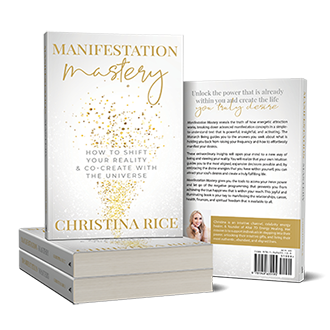


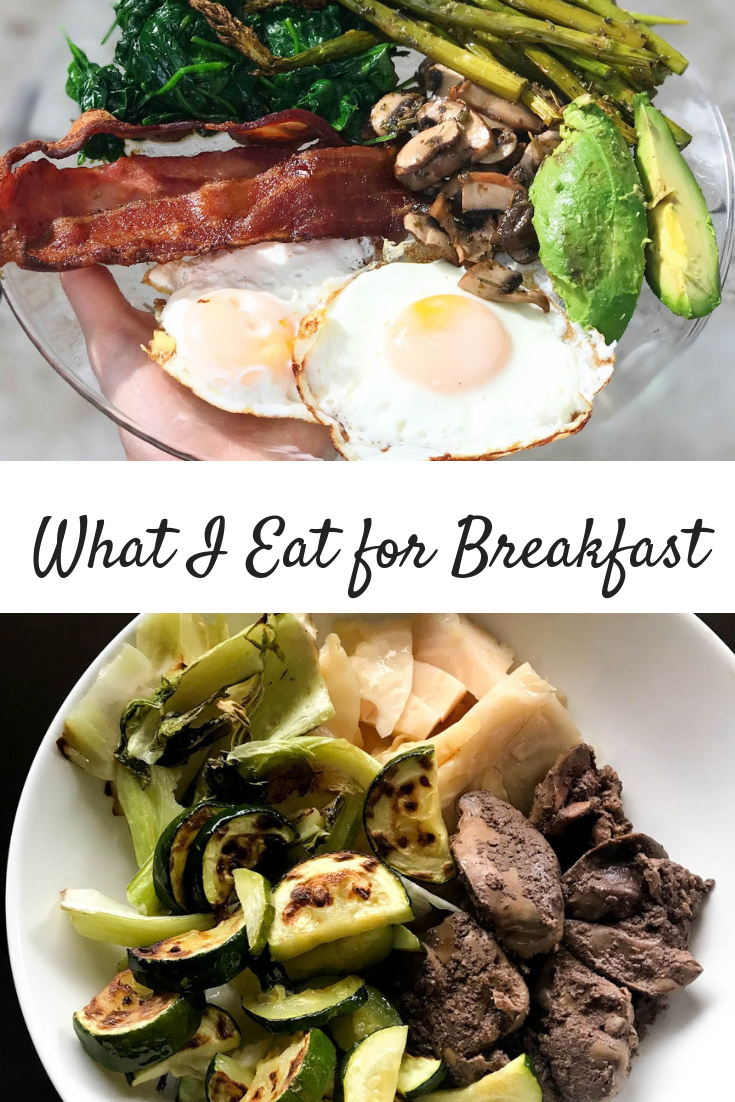
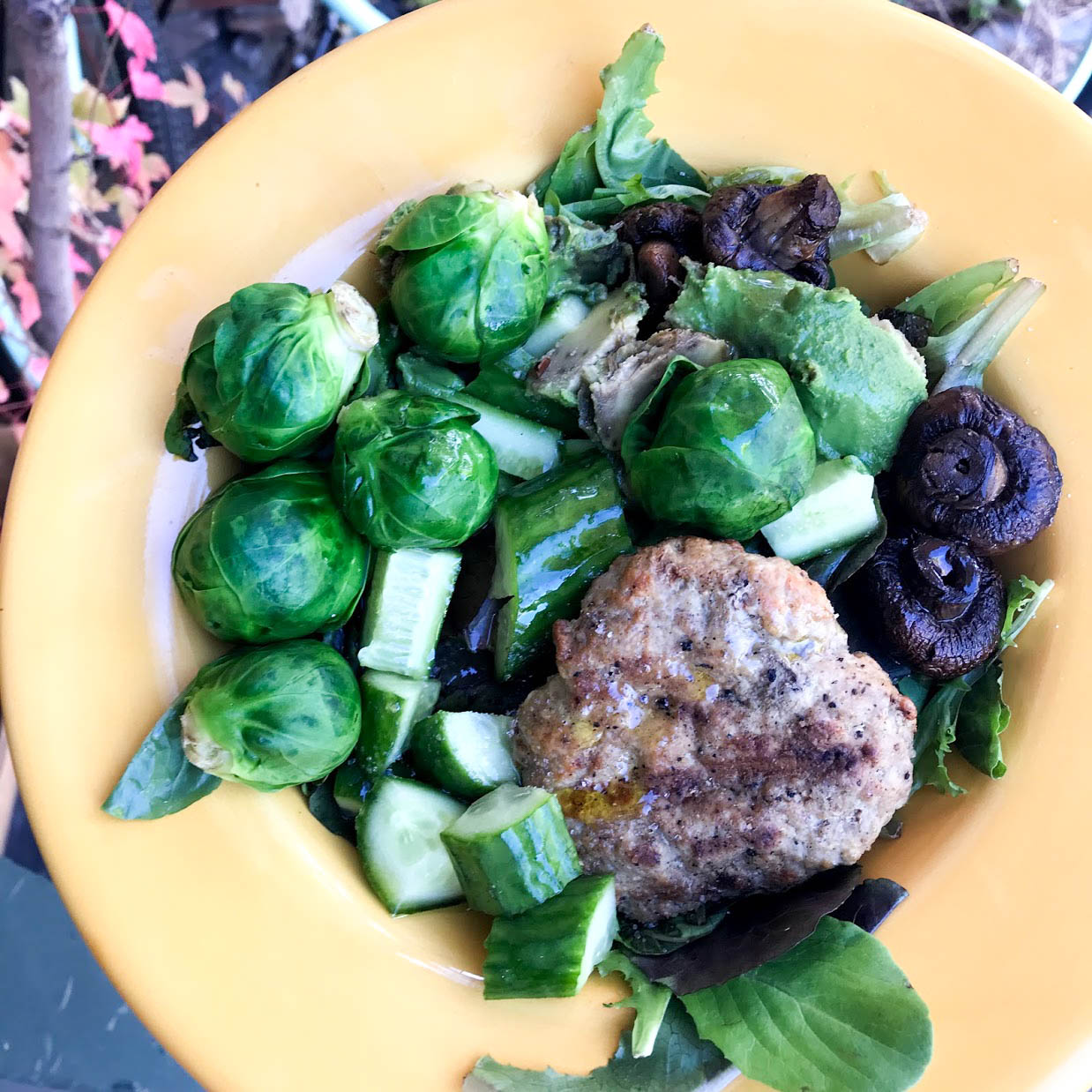
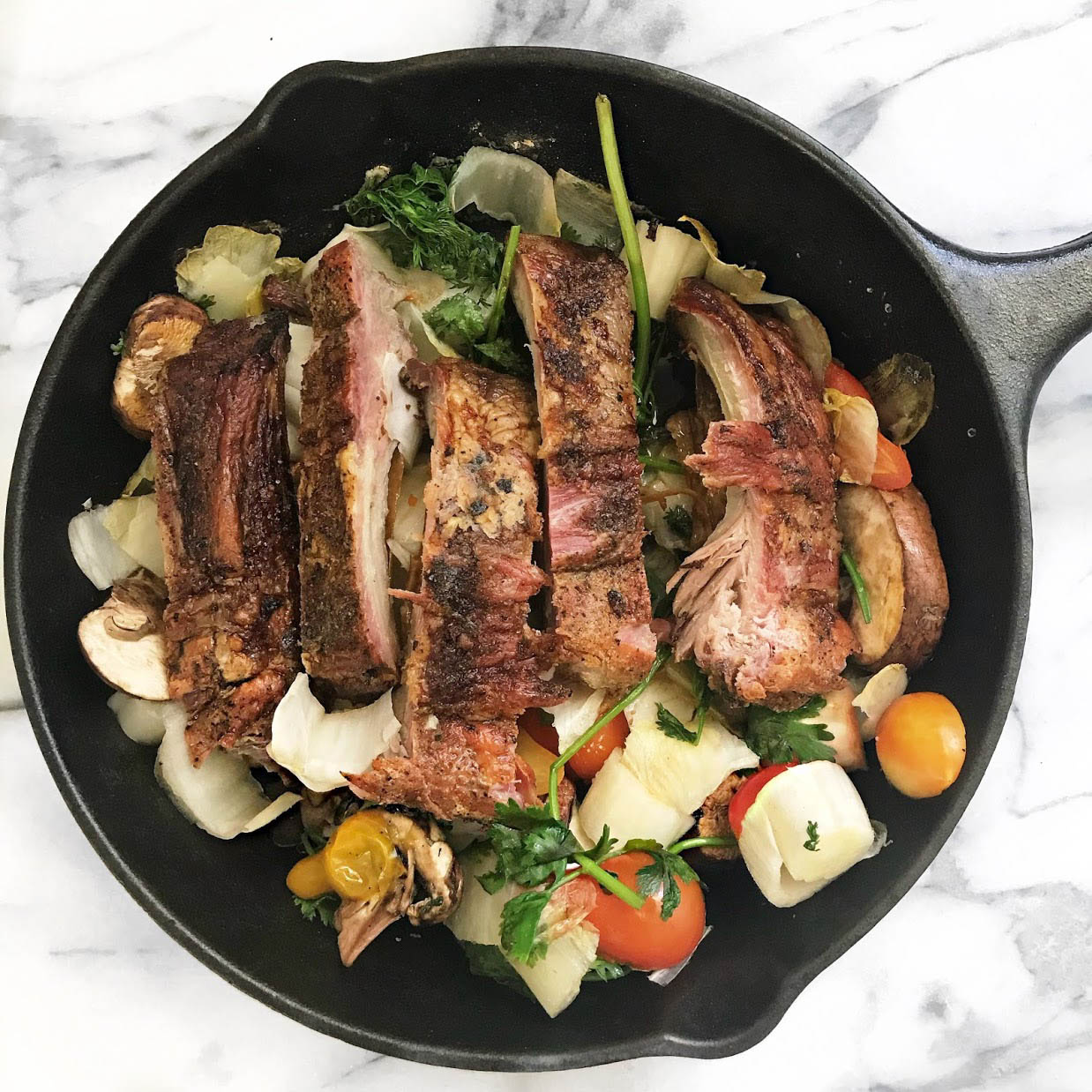
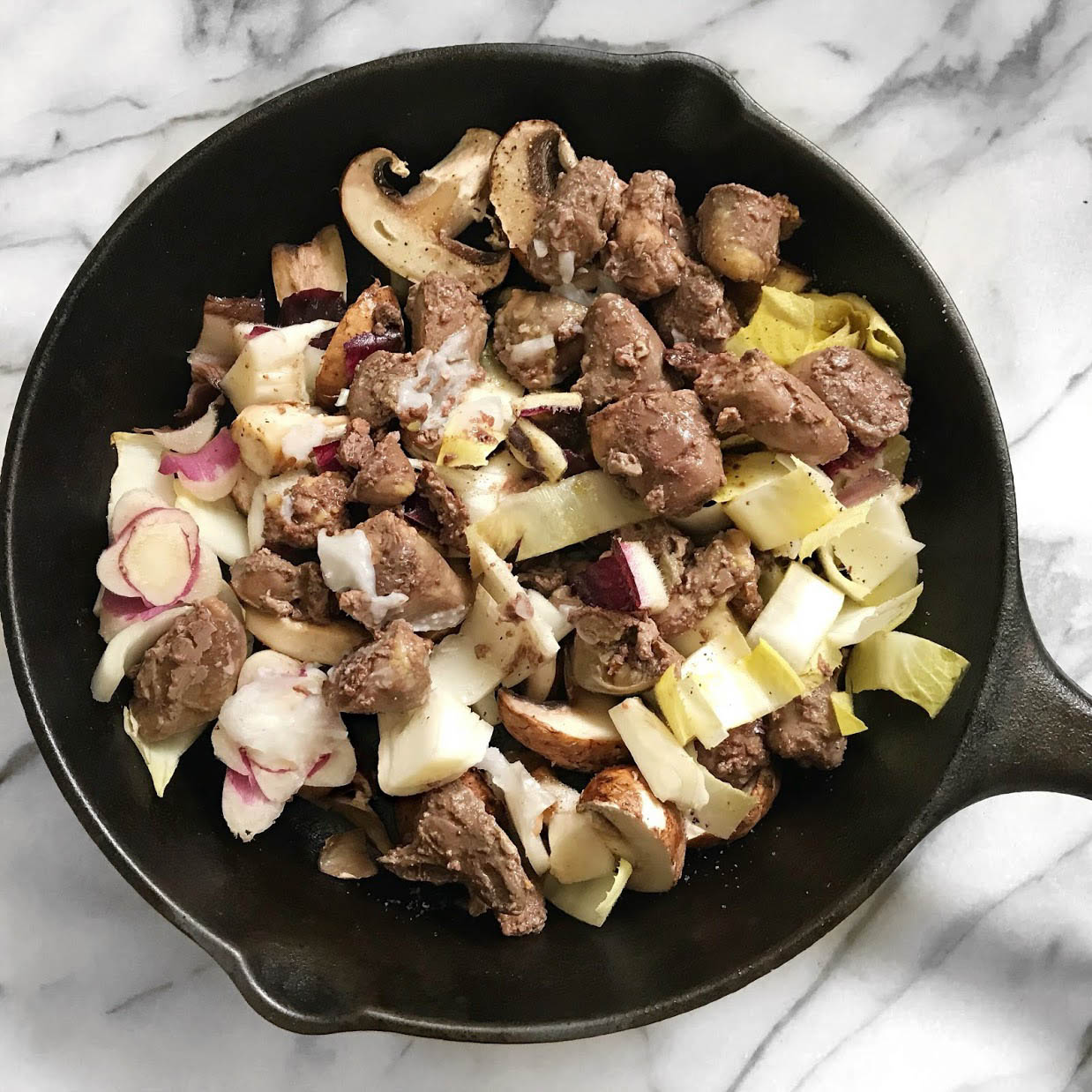
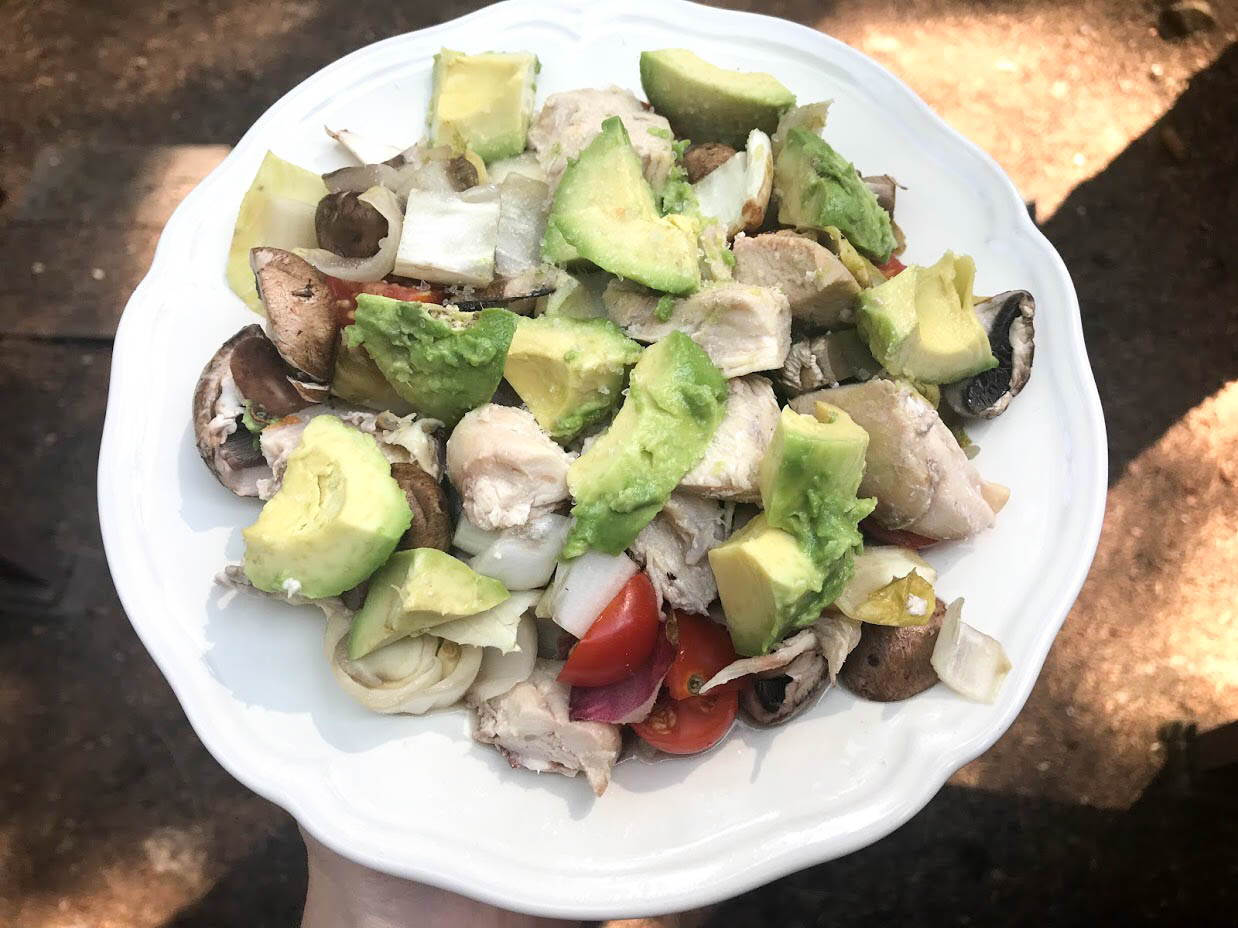
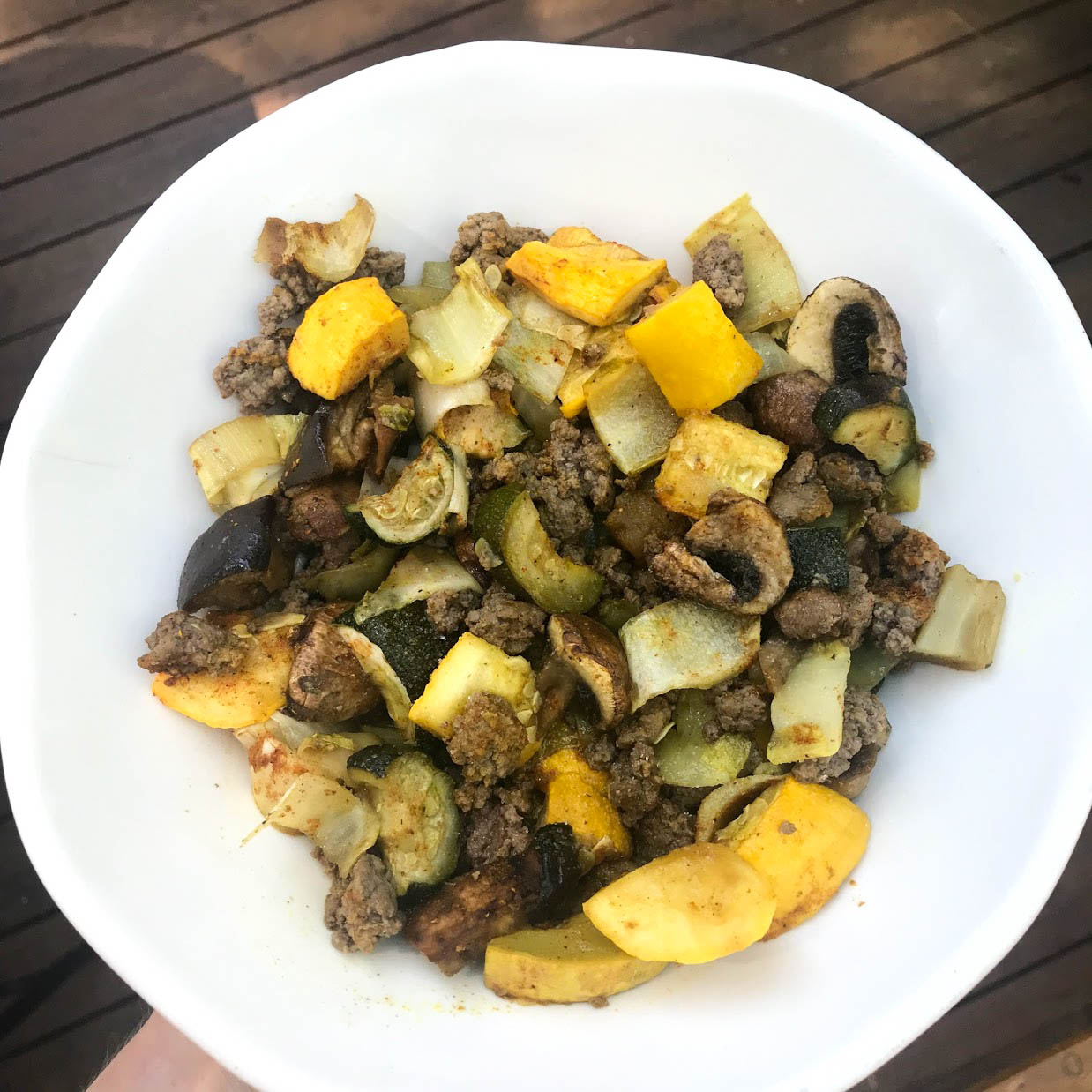
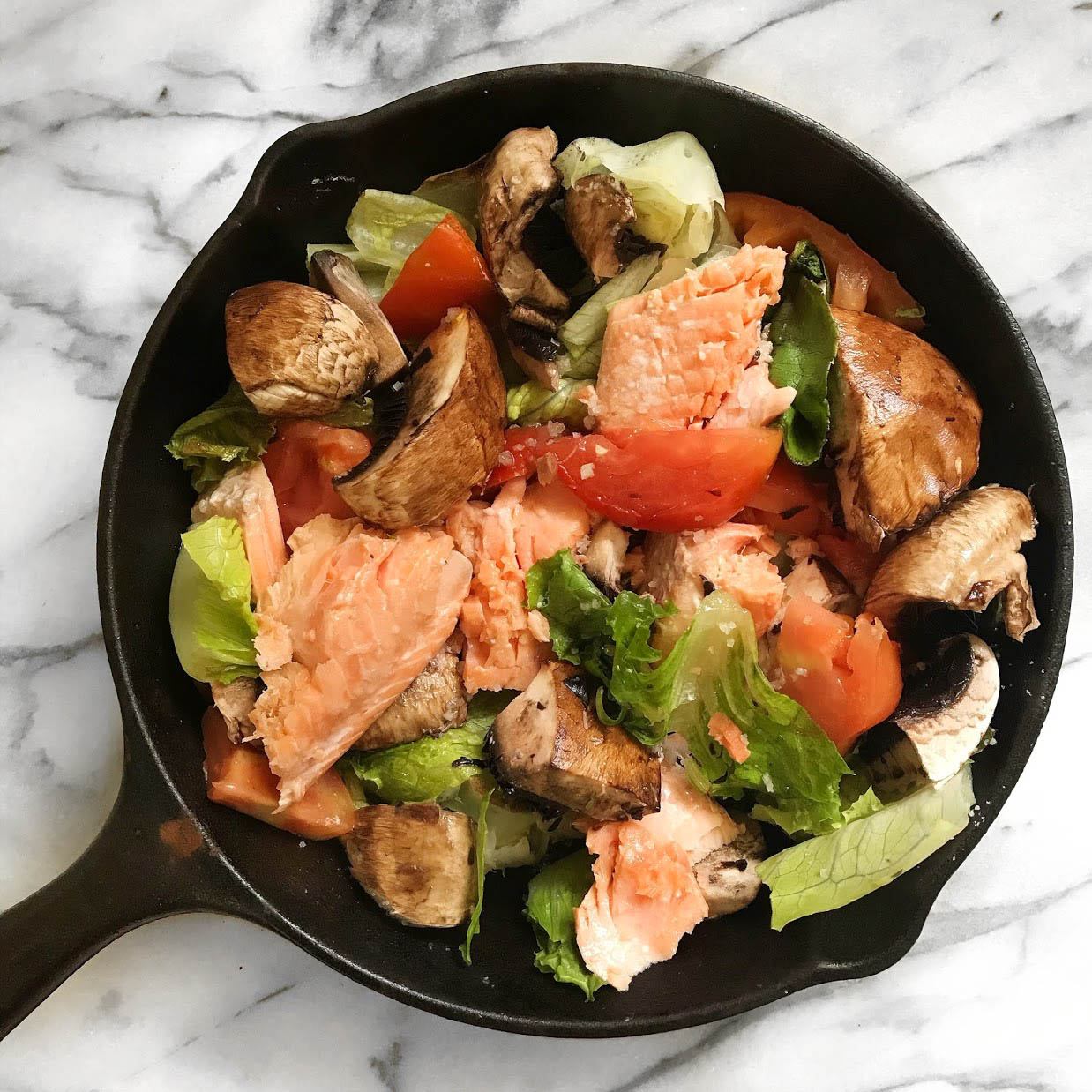
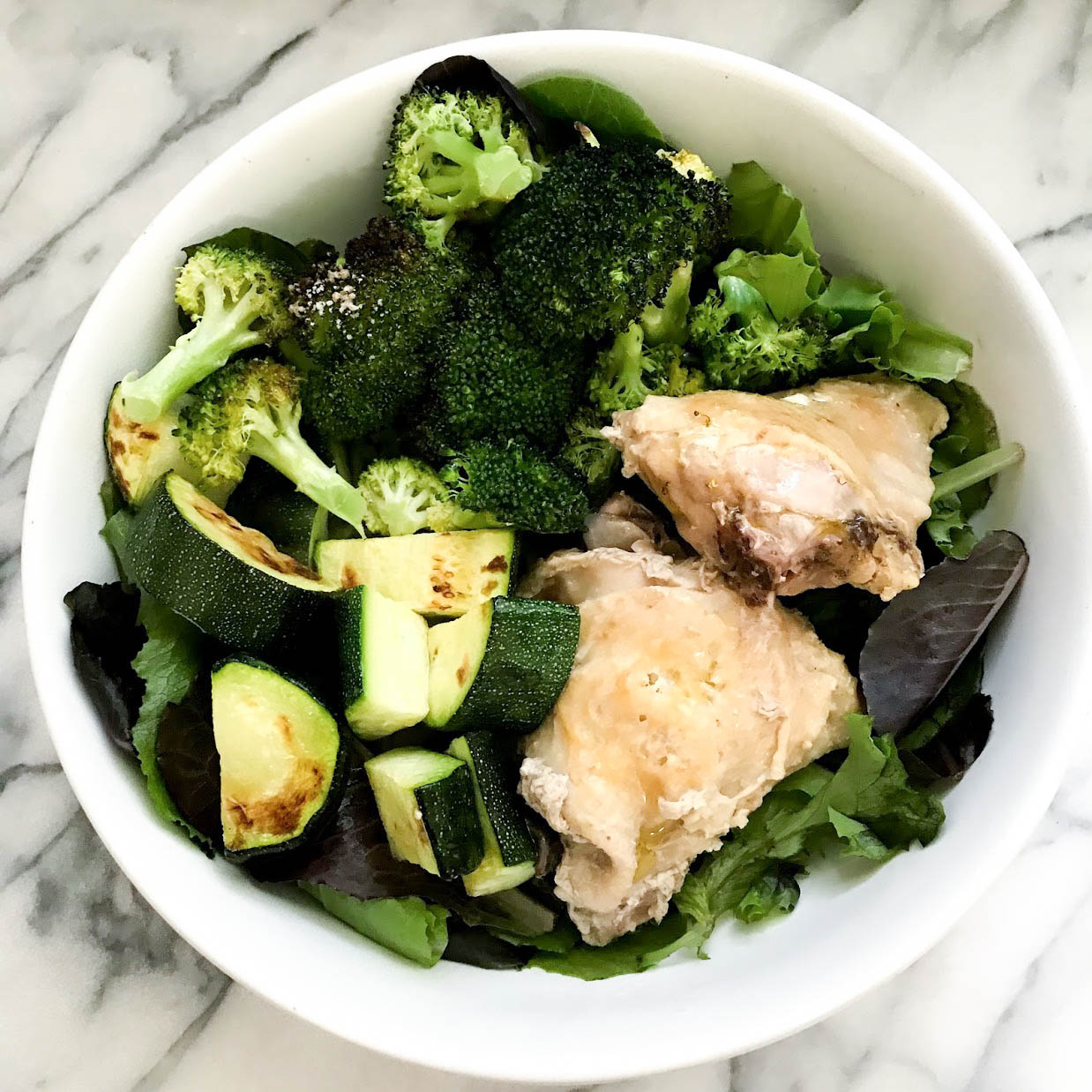
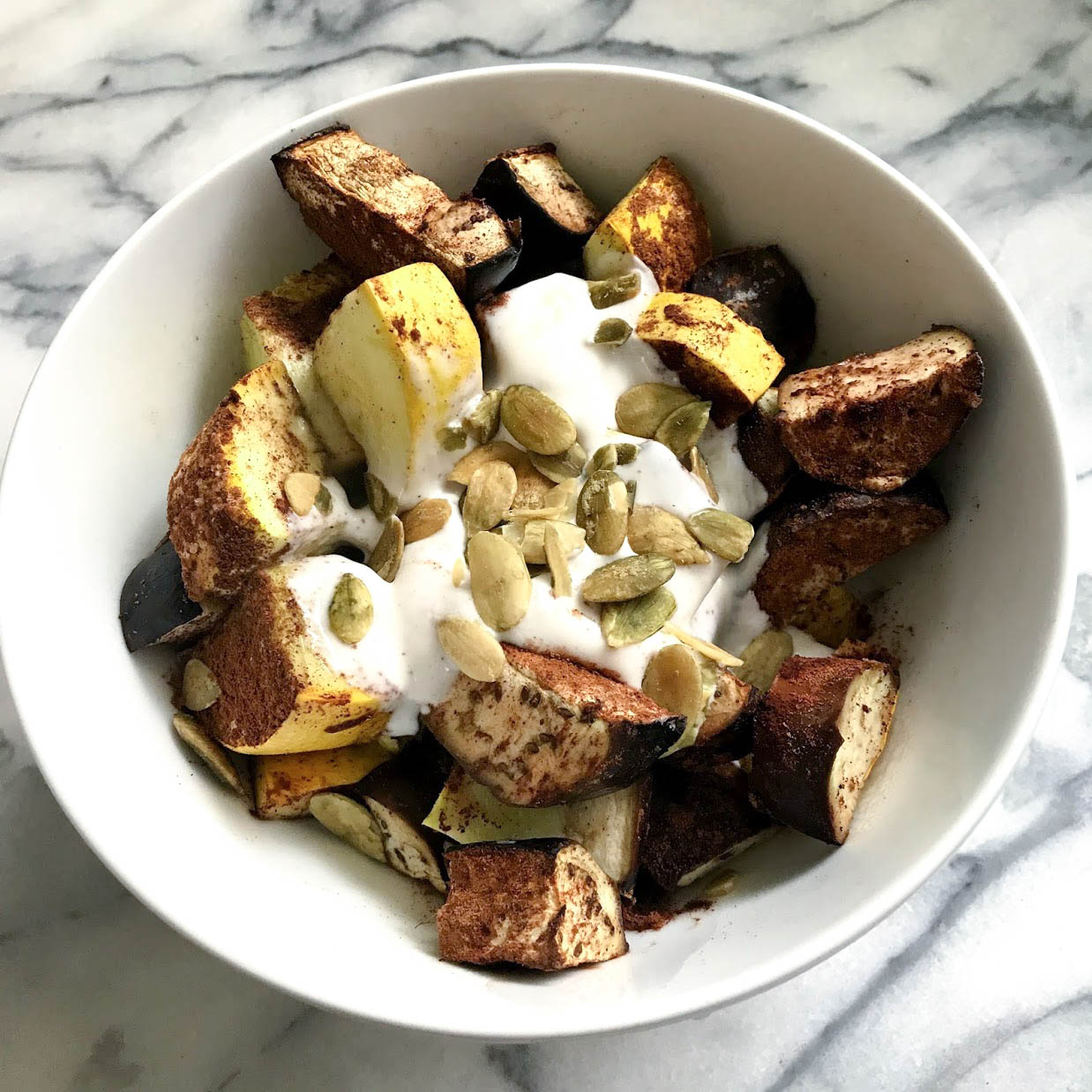
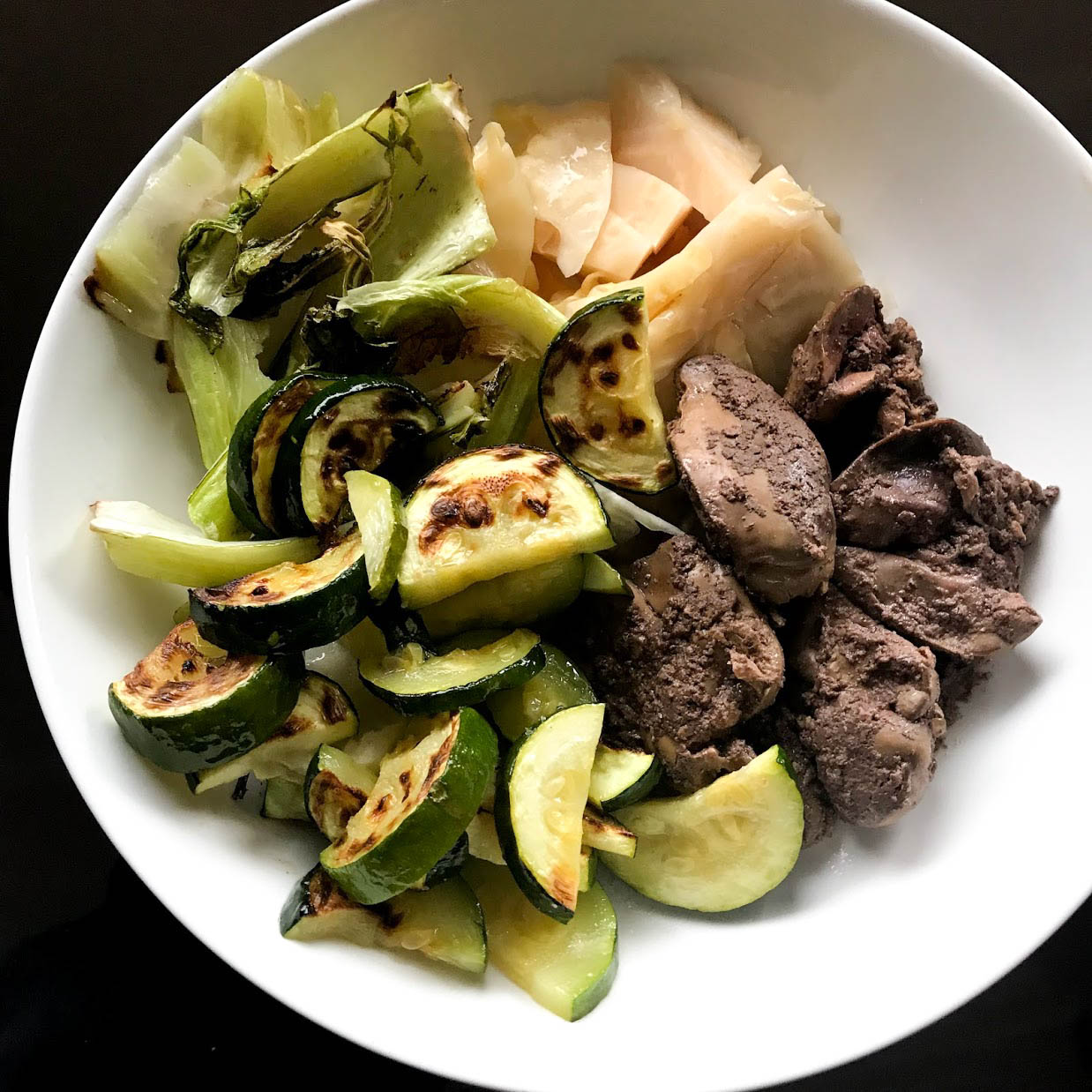
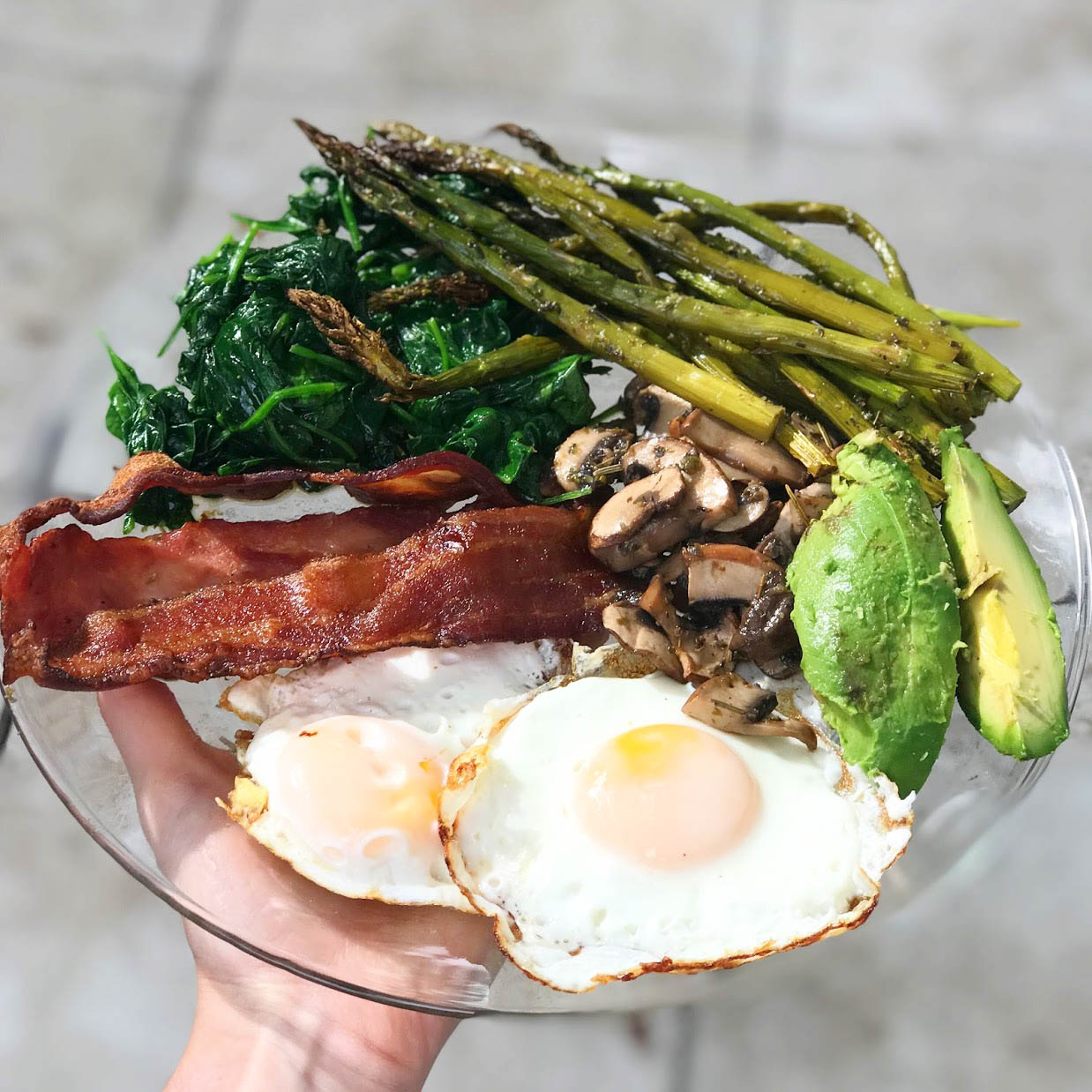

Get Updates
And Goodies
We’re over fake “wellness.” It’s time to unlock your magic & magnetism. Are you ready to vibe higher?
Are you ready to finally optimize your health habits for real results and true health?